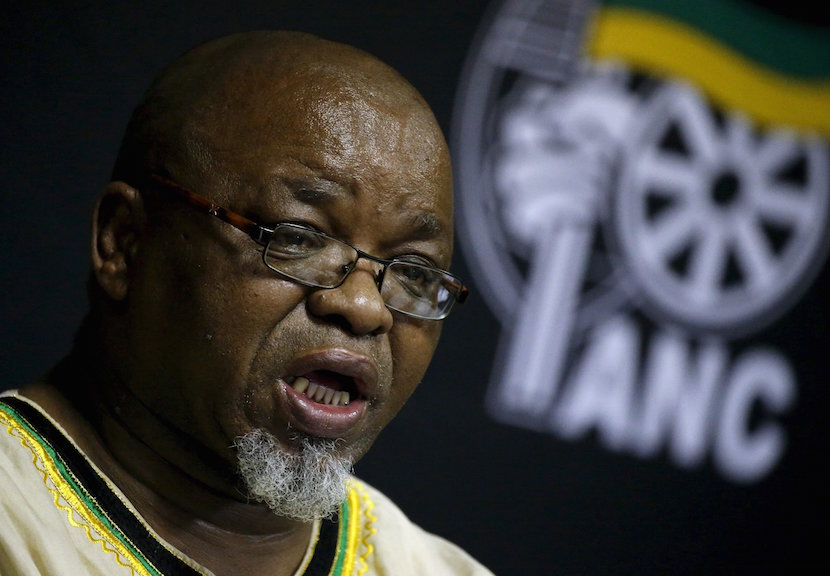The ANC is in panic mode and reverting to its socialist type. After four days of internal discussion following its disastrous showing in the municipal elections, the ruling party’s brains trust concluded the economy requires even more of the same command-and-control medicine. The delusion is clearly evident in statements that “creating jobs and alleviating poverty” will be achieved through “reprioritising the budget.” Which is politics speak for accelerating the destructive Developmental State by taking more away from the only force capable of creating employment and putting even more power into the hands of misguided bureaucrats. When will the penny drop? A penny which shows sustainable jobs are only created by entrepreneurship – a rare and fragile power that is only stimulated in stable, predictable environments. Places where the rule of law is consistently applied and efficient allocation of capital is encouraged. In other words, in geographies where human potential gets unlocked by giving people a ticket to participate and an incentive to work harder to improve their circumstances. Without having some Big Brother threatening to grab the fruits of your labours. How many more examples of the two Koreas, the two Germanys, the two Chinas will it take? There are none so blind as those who refuse to see. – Alec Hogg
By
(Bloomberg) — South Africa’s governing party will press the government to prioritize creating jobs and alleviating poverty in the national budget, said Gwede Mantashe, the African National Congress’s secretary-general.
“It can’t be business as usual,’’ Mantashe told reporters in Pretoria, the capital, on Sunday after a national executive committee meeting to discuss the ANC’s weaker performance in municipal elections this month. ‘‘To effectively deal with the triple challenge of unemployment, poverty and inequality, government in the coming cabinet lekgotla must reprioritize the budget’’ to ensure National Development Plan programs are funded, he said.

The ANC is seeking ways to reverse a decline in support after this month recording its worst performance in an election since Nelson Mandela led the party to power to end apartheid in 1994. It won 54.5 percent of the popular vote in the Aug. 3 municipal ballot, down from 62.2 percent in a national election two years ago, and it gave up outright majorities in four of the country’s eight major cities. The NDP is the government’s 20-year plan to boost economic growth and slash a 27 percent unemployment rate.
The party’s leadership agreed to take collective responsibility for the drop in support and “resolved to take immediate and bold actions to address the weaknesses and shortcomings that led to the decline of our electoral support,” Mantashe said.
‘Populist Posture’
The NDP was released in 2012 as the government’s proposals to accelerate economic growth, create jobs and attract investment. The central bank projects no growth this year. President Jacob Zuma’s cabinet will hold a four-day meeting, known as a lekgotla, this week to discuss the economy and other national issues.
Wayde is exactly what we needed after that ANC NEC meeting…
— Justice4All (@Unathi_Kwaza) August 15, 2016
“For a long time we have been talking about the lax attitude toward the implementation of the NDP, but now there are consequences where they’ve lost municipalities, now they want to talk to Treasury to finance the NDP,” Ralph Mathekga, a political analyst at the Johannesburg-based Mapungubwe Institute for Strategic Reflection, said by phone. “That is why this budget rhetoric is coming out and with a very populist posture.”
Finance Minister Pravin Gordhan has pledged to keep spending under control, cutting South Africa’s budget deficit to 2.4 percent of gross domestic product in three years from about 4 percent and to limit debt to less than 50 percent of GDP.
Coalition Talks
Fitch Ratings warned that the results of this month’s vote could push the ANC to turn to more populist policies to redress voter dissatisfaction. Fitch and S&P Global Ratings, which both have South Africa’s credit rating at one level above junk status, have cited the nation’s increasing debt as a risk to the ratings.
Coalition talks to control cities including Pretoria and Johannesburg are continuing among parties including the opposition Democratic Alliance and the Economic Freedom Fighters. They have until Aug. 20 to form governments in a total of 27 hung councils across the country.
https://twitter.com/Sentletse/status/764879656797478912
The ANC controls three of the eight main cities outright and won the most votes in Johannesburg, the biggest city, and industrial hub neighbor, Ekurhuleni, while falling below 50 percent support. The DA is the largest party in Pretoria and Nelson Mandela Bay and has an outright majority in Cape Town.
University Protests
The ANC leadership also agreed to support the principle of not increasing university fees in 2017, according to a statement on the party’s website. The proposal comes as the South African Union of Students threatens to shutdown the country’s universities and institutions call for a minimum increase of 8 percent, the Johannesburg-based Business Day newspaper said. The Council for Higher Education, which advises the government, has recommended a fee hike of 6.3 percent, it said.
The National Treasury hasn’t planned for no fee increases, which, if implemented would mean the government would need to raise taxes or reallocate spending from other departments, the Business Day said, citing Michael Sachs, head of the budget office.

